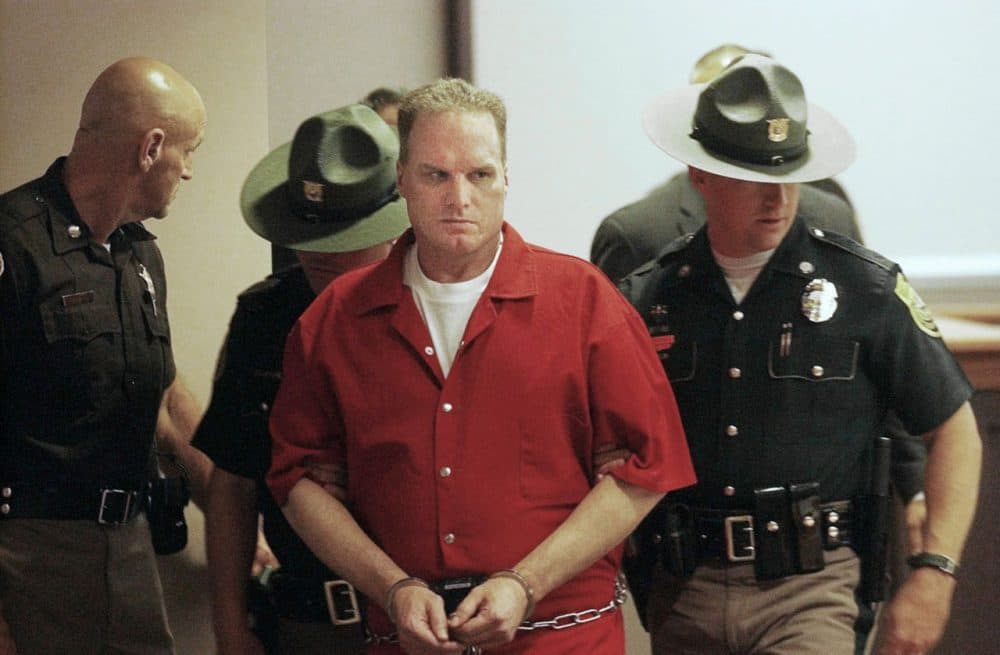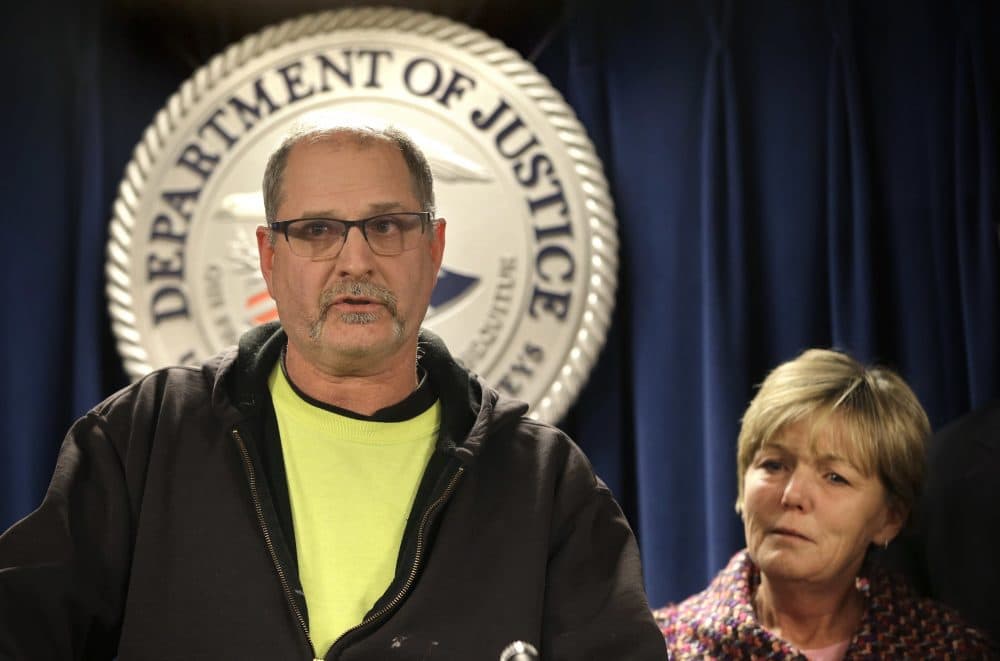Advertisement
Convicted Killer Gary Lee Sampson Sentenced To Death
Resume
It was a day not so much of emotion, but of exhaustion.
Sixteen years after the killings, 13 years after the first jury sentenced him to death and six years after a judge overturned that verdict on account of juror misconduct and ordered a new trial, the latest trial of admitted killer Gary Lee Sampson also ended in a death penalty verdict.
A federal jury decided Monday afternoon that Sampson shall be executed for the 2001 carjacking and slaying of college student Jonathan Rizzo.
"Gary Lee Sampson will pay for his life for all the heinous crimes he committed," said Massachusetts U.S. Attorney Carmen Ortiz. "And he received the maximum sentence that the law provides."
The verdict against Sampson marks the second time in two years (the other was Dzhokhar Tsarnaev) that a federal jury has imposed the death penalty in Massachusetts, a state that has no death penalty and has not executed a defendant since 1947.
For the killing of grandfather Philip McCloskey, Sampson, however, escaped the death penalty and was sentenced by the jury Monday to life in prison without the possibility of parole.
Life And Death Verdicts In The Second Trial
There was an economy of tears and dramatics from those who had endured the ordeal, bearing witness to twice-told testimony and twice-shown photos of the corpses of their loved ones.
"It's a very somber and sobering day for us, but we know justice has prevailed," said Michael Rizzo, the father of 19-year-old Jonathan.
Seven men and five women filed into the courtroom — the forewoman holding the large verdict form to her chest — after 16 hours of deliberations. In his first trial, Sampson had wiped tears from his eyes upon hearing the verdict. Second trial was a dry one.
This time around, after imposing the death penalty for the death of Jonathan Rizzo, the jurors failed to reach unanimity on the verdict regarding victim McCloskey, age 69.
"We are disappointed in the verdict in the way it was split," Ortiz said Monday.
The juror's decision, which spares Sampson from a second death penalty for taking McCloskey's life, seemed puzzling. Jurors had heard Sampson's graphic, unremorseful confession to police about stabbing the older man over and over again, in a frenzy that nearly decapitated him.
Philip McCloskey's son, Scott McCloskey, however, took comfort in knowing death by execution for killing someone else, namely Rizzo, would still be Sampson's fate.
And practically speaking, one execution of Sampson is as good as two.
"It all ended up with the verdict of death so I'm happy with the results," said Scott McCloskey. "It's done, and hopefully, we'll never have to go through this again. God bless my father. May he rest in peace. That's all I got."

In filling out a 29-page verdict form, the jury had shown some consideration for Sampson. One or more of them agreed that he was mentally ill and suffered a mild traumatic brain injury as a child, that he had been the victim of physical and sexual violence in prison.
But not one juror agreed that traumatic brain injury explained his "lifetime struggles to control his behavior" or that he demonstrated any acceptance of responsibility for killing his victims.
One of the mitigating factors the defense submitted for the jurors was this: "Gary Sampson wants to love and be loved." To that, every juror voted "no," a devastating rejection of the defense's call for mercy.
"This is what we wanted, this is what we fought for and this is what we've been here for for the last 15 years," Michael Rizzo said, giving thanks.
One death penalty was enough to be shared by three families, said Mary Rizzo, Jonathan's mother. Sampson was also sentenced to a separate life sentence for the 2001 killing of Robert 'Eli' Whitney in New Hampshire.
"Philip, Eli and Jonathan all are in my heart and in my pictures in my wallet every single day. This has been brutal," she said. "I am so glad it is over."
What is not over, however, as the history of the federal death penalty demonstrates, are the years of likely appeals should the 57-year-old Sampson live that long.
Until then, the other sentence, the one imposed with regard to McCloskey will suffice: life in prison without the possibility of parole, until Sampson is cleared for his execution.
This segment aired on January 10, 2017.
